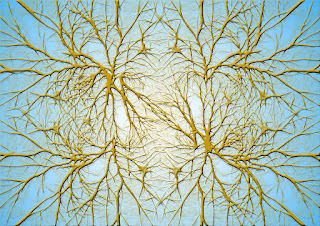21st CENTURY: TOWARDS A NEW CONCEPT OF ORGANIZATIONS
Original article published in catalan on 08/14/2024
Most organizations in the 21st century rely on
the knowledge of the people who make them up, so one of the main challenges
will be knowledge management. However, knowledge management should not be
approached merely from a "classic" perspective—where one or a few
people define training and development plans for employees—but from a more
comprehensive and holistic view of organizations.
People close to me have likely heard me refer
to a quote by Steve Jobs: “It doesn’t make sense to hire smart people and then
tell them what to do.” Therefore, one of the challenges organizations face is
how to design and implement organizational models that encourage the
contribution of knowledge from employees. These models must also be flexible
enough to facilitate the emergence or construction of the most relevant
knowledge at any given moment.
A more comprehensive and holistic view of
organizations involves seeing them as complex systems: composed of people but,
more importantly, of interactions. It’s important to recognize that, as a
complex system, the rules governing it will be more aligned with natural
sciences or biology (recursiveness, emergence, self-organization...) than with
Newtonian physical laws of cause and effect. Hence, an approach to
organizations that is more ecological than mechanistic.
Daniel Innerarity reflects on this in his book
“A Theory of Complex Democracy”: “There is a general principle of
organizational theory that warns that an increase in environmental uncertainty
demands a corresponding increase in system complexity in terms of anticipation
and response capacity (Wagensberg, 1985). The internal complexity of the system
must be appropriately related to the complexity of the environment (Luhmann,
1970). Complex systems need a correspondingly complex governance architecture
for their self-organization.”
The societal model we live in today is
different from that of the last century. We can think of concepts such as
Modernity or Zygmunt Bauman’s Liquid Society, or Joan Subirats’s Epochal
Change. Thus, organizational models, whether in the public or private sector,
must adapt and evolve to respond to or create new opportunities within the
current societal model.
The perspective, vision, and intuition of those
who lead and manage organizations are important for constructing these new
models, but they should not be essential for these transformations. From a more
systemic viewpoint, the design and implementation of these new models cannot
overly depend on one or a few individuals but should rest with the organization
itself.
“In the social world, what matters are not
individuals, but interactions and their corresponding institutionalization.
(...) It is not so much about modifying individual behaviors as it is about
properly configuring their interaction, and that is precisely the task we can
designate as collective intelligence. (...) We should not expect too much from
the virtues of those who make up a complex system or fear too much its vices;
what should really concern us is whether its interconnection is well organized,
how the rules, processes, and structures that shape this interdependence are
set up.” (Daniel
Innerarity, 2019)
Thus, we are talking about new organizational
models aimed at bringing out the knowledge of the people who are part of them,
models that view organizations as complex systems with all their potentials and
difficulties. Complex systems that better adapt to the complexity of the world
we live in. Models that focus on innovative structures but, above all, on
people’s interactions to promote learning, knowledge, and collective
intelligence. Models where the focus on individuals designing these new
architectures is not a fundamental requirement for their stability. Models that
address the challenge of shifting the vision of new structures from one or a
few individuals to the organization itself.
“If the first Age of Enlightenment revolved
around acquiring knowledge for individual and social progress, the second Age
of Enlightenment should aim at a broader level of learning, at the intelligence
of organizations and institutions, and at organized forms of collective
intelligence.”
(Daniel Innerarity, 2019).
Interesting challenges in the conception of
organizations in the 21st century, shall we advance?
___
Innerarity, D. (2019). A Theory of Complex
Democracy. Barcelona: Galaxia Gutenberg.




Comentarios
Publicar un comentario